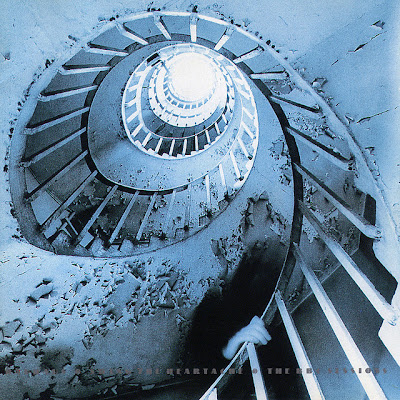I can't remember a time when reading wasn't central to my life. I know without a doubt that my library card was the childhood object that most influenced who I am today. Throughout high school I had an after-school job at my hometown public library--a reader's dream job--which happily encouraged my compulsive and indiscriminate reading. I tackled everything from juvenile mysteries (the Nancy Drew series) to literary fiction I was too young and unsophisticated to understand (Philip Roth's When She Was Good).
I owe a huge debt to reading. Like many readers have said before me, books opened the world to me--a good thing, since my small-town, small-life world was pretty limited. Books were the peephole through which I saw what was possible. Even better, after a while, I saw that the possibilities were there not just for other people, but for me.
One legacy of reading, though, wasn't as positive. When I left home for college and my life started expanding, I confused the world I was entering for the world inside the books I'd been reading. I looked at the situations and relationships I was in as stories in a book. Sometimes, in my journal (I called it a "diary" then), I even plotted the dialogue in advance: what I would say, how the other person would respond, what the outcome of our conversation would be.
Eventually, it dawned on me that since no one responded the way I assumed they would, and things rarely turned out as I expected, the literary model might not be the way to go. But I can see the draw of this approach. A world viewed through a literary lens has structure and predictability: lives have chapters; stories have beginnings, middles and endings; motifs foreshadow things to come; and characters have small epiphanies and big aha! moments.
A novel's heroine might face challenges; she might have the wrong information and act badly as a result; she might be confused and even despondent. But as readers, we knew that it was only a matter of time before she'd have that decisive, defining moment of clarity, the one that would alter her attitude or course of action. Order would be restored and ALL WOULD BE WELL. Even when things didn't turn out as she (or we) had hoped, we knew that the insight she'd gained in that defining moment had changed her, irrevocably, for the better.
It's a pretty comforting scenario. Even when there's not a happy ending, there's a "happier" ending (a wiser protagonist). Unfortunately, our lives don't usually play out that way. But you already knew that.
It's lovely to think that if we live our lives with good intentions, not only will we see "important" moments coming up, but light bulbs will appear, glowing, over our heads, maybe accompanied by trumpets. ALL WILL BECOME CLEAR. We'll know what to do, and we'll do it.
When I look back over the last decade of my life, I don't remember any light bulbs or trumpets. Yes, I made big changes. My decision to leave my corporate job, for instance, was a major step, but "clarity" was nowhere near what I felt at the time.
In fact, I think I was able to make the choices I did because I'd stopped believing in those big "defining moments." I'd had a glimmer of recognition that it was the the small moments of my day-to-day life that deserved my attention.
I've come to see that it's in dailiness that our lives happen, and that it's usually quiet there (no trumpets, alas). How we live day-to-day in the world can reveal life's richness or leave us wondering why it's passed us by. I can wait for aha! moments or I can choose to savor the raspberries in my morning cereal, give my complete attention to my friend when we meet for tea downtown, and welcome the stretch in my hamstrings when I bend forward in yoga class.
It's when I participate fully in these moments that I feel most like myself, the self that's just right exactly where she is doing exactly what she's doing. This is when I see most clearly that the subtle currents linking these moments are, in fact, the true narrative of my life. I'll always love reading, but I know the artificial tidiness of fiction is no comparison to the real stuff.
--
Image by murphyeppoon from Flickr, under a Creative Commons License.



